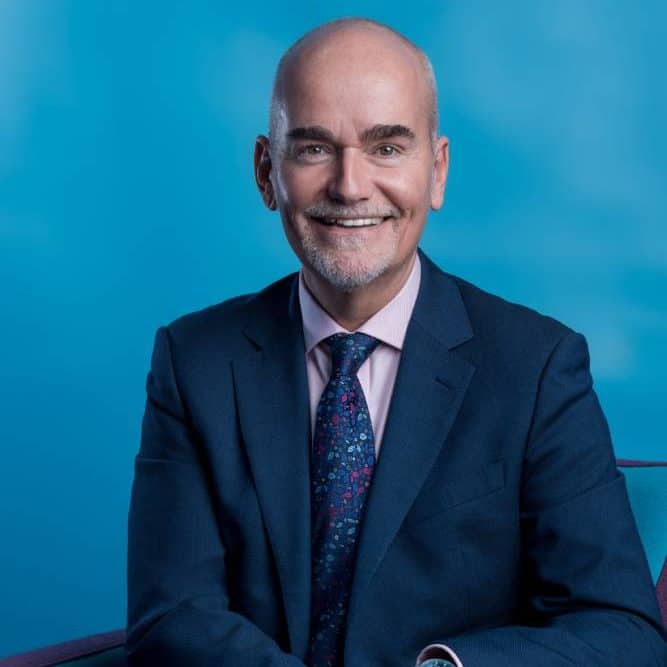By guest blogger David Blackburn, Chief People Officer at the Financial Services Compensation Scheme.
For the first time, the Financial Services Compensation Scheme’s gender pay gap is now 1.26% in favour of women – here’s how we did it.
The Financial Services Compensation Scheme (FSCS) is best known for protecting deposits such as current and savings accounts held with banks, building societies and credit unions. We also protect insurance policies, some investments, insurance broking, mortgage advice, self-invested personal pensions (SIPPs), pensions advice, payment protection insurance (PPI), and debt management plans. From 29 July 2022 our cover will also extend to Funeral Plans as they come under FCA regulation. We are a free service for customers, independent of government, and funded by a levy on the financial services industry. Since our launch in 2001, we have paid £26 billion in compensation to six and a half million customers.
As the Chief People Officer of FSCS, I sit on the Executive Team overseeing the end-to-end employee life cycle at the scheme including recruitment, learning and development, Total Reward, diversity, equity and inclusion, and employee environment and experience.
Promoting a more diverse and inclusive culture doesn’t happen overnight
2022 is a massively different world of work from when I started my HR career 25 years ago, and we have made significant progress since.
At the time, organisations talked about equal opportunities and the term ’diversity and inclusion’ was yet to surface.
In fairness, diversity, as we know and understand it today, wasn’t something we spoke of back then. The fundamental building blocks of our approach in employment law came from the Equal Pay Act 1970, the Race Relations Act 1976, and Sex Discrimination Act 1975.
Sexual orientation, religion and beliefs weren’t legally protected until 2003, later followed by age in 2006. Then, we saw the introduction of the Equality Act 2010, which brought all legislation together into a single framework and introduced protected characteristics – a huge and important step forward.
The Equal Pay Act is 52 years old, yet here we are still trying to solve the gender pay gap!
Unfortunately, we haven’t made nearly enough progress on pay inequalities in certain segments of our society. When I spoke at the first-ever Chartered Management Institute’s (CMI) women’s conference in May, the scariest statistic that stuck with me was that 34% of men believe we talk too much about gender! This worries me – the assumption by some who, very wrongly, think these battles are won or that it’s ’done’. We are far from ‘done’.
The FSCS is now recognised as the UK’s fourth most inclusive employer among the top 50 inclusive workplaces, rising by 36 places in three years. We’re very proud of that.
An inclusive culture doesn’t happen by osmosis. Talking the talk isn’t good enough when organisations don’t do anything to change. Organisations must act, starting by defining what being inclusive means.
At the FSCS, we define inclusivity as ‘a place where everyone can succeed in achieving their personal and professional goals, balance their home and work lives and feel that they truly belong.’
Inclusivity is about understanding the diverse needs of colleagues at different stages of life. For many, a huge part of these needs relates to maternity, paternity and shared parental leave. Our big organisational change began when we reflected on these needs. We asked ourselves, ‘is our current enhanced package of 20 weeks for maternity pay enough?’. Then we challenged ourselves to extend it to 26 weeks. We then asked, ‘why wouldn’t we offer the same amount of leave to fathers, and why don’t we call it “family leave”?’ Nowadays, families are structured in many different ways, so we wanted to further extend these rights to adoptive parents. What I find absolutely fascinating is that the take up of extended parental leave is very poor in the UK. The national average is around 12% to 13% only. At the FSCS it is 100%. By actively promoting family leave to our colleagues, we’ve encouraged everyone to take their entitlement in full as part of the overall wellbeing package as an employee of the Scheme.
Every family is different, made up in lots of different ways. We recognised that everyone should be entitled to the same thing and made the change to be more inclusive. In 2021, we were recognised as the Family Friendly Employer of the Year in the Personnel Today Awards.
What always makes me laugh when we talk to returning dads is their worry about lack of visibility and the impact it will have on their career, by being out of the business. And I laugh because it is a sudden realisation of what women have been dealing with their entire lives. But this means fathers are now great advocates for equity for women in the workplace.
Flexible working: “Your day, your way”
A mantra that we live by at the FSCS is ‘Your day, your way’. Every role in the organisation is flexible from day one. This has huge implications for working parents, especially working women and working mothers.
Research has shown that gender pay gaps lead to gender pensions gaps. One of the biggest causes of the gender pensions gap is the motherhood penalty, which is often due to rigid work structures. The introduction of flexible working, I believe, is the biggest lever in allowing women to succeed and level up and close the pay and pension gaps.
How to make a start? Set yourself some ambitious targets
In 2019, we set an ambitious target as part of the Women in Finance Charter by committing to achieve a 50% gender split in our leadership population by March 2022, and a 50/50 representation for all shortlisted roles in the organisation.
Today we have a board that is 60% female and an executive team that’s 75% female, setting us apart in the regulatory family.
I am genuinely very, very excited that we have reduced our gender pay gap over the last four years from 18% two years ago down to 3% last year. For the first time in 2022, our gender pay gap is now 1.26% in favour of women.
When organisations say the gender pay and pension gap is too big a problem to solve, my response is ‘No, it isn’t’. As an organisation’s talent turns over, it’s the perfect time to apply changes such as employing more women.
The message is simple: employ more women and employ more women to senior posts. Make sure you have a pipeline of female talent and get more women into the recruitment process at the front end to drive that change. Commit to reducing the gender pay gap and act on it.
There are a lot of good practices, guidance and guidelines that exist thanks to multiple organisations that have created them. The Women in Finance Charter for example, has a very specific objective, which is to increase the number of women working at senior management level in financial services institutions. By becoming a signatory, you make a similar set of commitments.
Every year, signed organisations share a plan for what they will do to move their organisation towards this goal and report on your progress.
Gender equality requires all of us to make commitments and be accountable to changing practice. Otherwise, nothing will change.

About David Blackburn
David Blackburn is one of the most awarded HR professionals working in the UK today and recognised as the 3rd Most Influential HR Practitioner in the HR Magazine Most Influential List 2022. He is listed as one the top 100 HR Directors in the World in the HRD Global 100 2021 and is both a Chartered Companion of the Chartered Institute of Personnel and Development (CIPD) and the Chartered Management Institute (CMI).
David has received numerous accolades, including the Investors in People (IiP) Leader of the Year; MEMCOM Excellence Awards HR Leader of the Year, Personnel Today Awards HR Director of the Year, HR Brilliance Awards HR Professional of the Year and HR Excellence HR Team of the Year twice, and many more.
With 25 years’ experience in leading all aspects of Human Resources, David is currently the Chief People Officer of the Financial Services Compensation Scheme (FSCS), recognised as the 4th Most Inclusive Employer in the UK.
NP/B0034/06/2022





